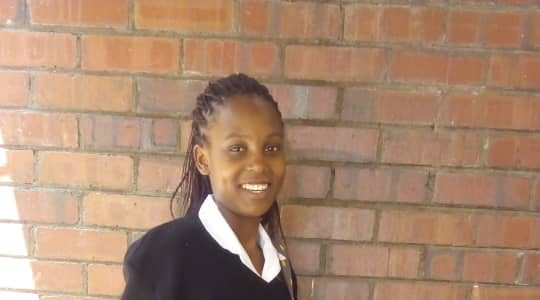Like so many young people, Wadza has to try to build a life for himself after suffering tragic strokes of fate.
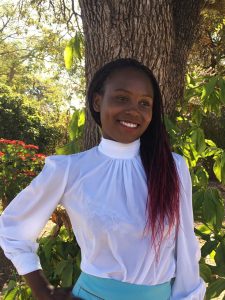
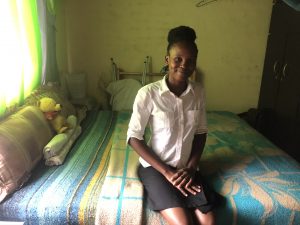
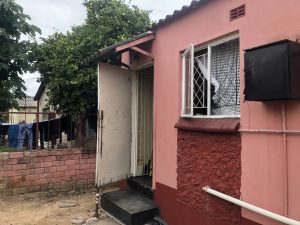
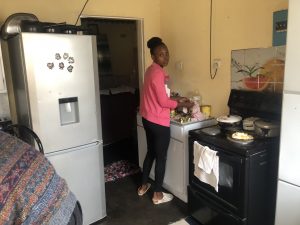
We met the then 17-year-old at the home of the pastor of the the Methodist Church in Masvingo. As an orphan, she had been living there for several months and didn’t know what would happen next for her. We were able to allow her to start a 2-year training course in the hotel sector, which she will finish in December 2020.
Wadza wrote her story for us during the Corona lockdown: “Ok, I’m going to start with my past. After my mother’s death, my father remarried. I stayed with my grandmother with my other two siblings. My father’s second wife has three children. She didn’t want us to stay with her. She said: “I can’t live with children who aren’t my own.” Since I am the firstborn, I had to look for a job at the age of 16. I started selling tomatoes. It was a difficult time and neither I nor my siblings went to school because my father was not working. No one was there for me and my siblings, and our relatives didn’t take care of us, although when my mother was still alive, she always took care of everyone. One day she became very ill and just couldn’t speak any more. I was alone with her. I knew she was going to die. That night I prayed that God would take me instead of my mother. Every morning I took her to the bathroom. I washed her and did everything for her alone, without anyone helping me. It was not easy to get to where I am today. I fed her because she couldn’t eat or walk on her own. One day she fell and there was no one to help me. I called our neighbors and they helped me take her to the hospital. On Tuesday morning, when I visited her, the doctor told me she had to be taken to the General Hospital in Harare. I wanted to go with her, but the doctor refused and said I was too young to go with her. She was driven alone in an ambulance and there was no relative of hers, no one was with her. The next morning I heard that she died.” (The mother died of malaria in 2017.)
What happened next: the relatives decided that Wadza should return to her grandmother and her siblings and thus also to very poor living conditions. But now her grandma also got sick. When Wadza was afraid that she would also have to care for her grandmother up to her death, she was close to despairing of life. Eventually, her grandmother was taken to the hospital. The diagnosis made everyone breathe a sigh of relief: diabetes. After her condition had been regulated with medication, she soon felt better again. Everyday life marked by deep poverty took its toll: the children had only torn clothes and plastic shoes to wear. So there was no possibility at all that Wadza could go back to school because she would not be able to afford the necessary school fees. Plagued by heavy thoughts, Wadza turned to her pastor. He encouraged her to remain in prayer until God gave her a solution. God heard her prayer: one day Pastor Annie, the sister of Wadza’s father, visited her niece. When she saw the great difficulties the grandmother and grandchildren were in, her heart was deeply touched. She – herself one of many sisters who had died early – invited Wadza to live in Masvingo with her and her family – two children of her own, three adopted children and her husband. There we got to know Wadza … Text and photos: Silke Flügge


